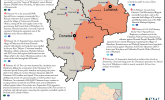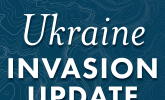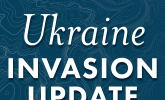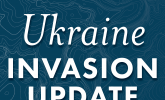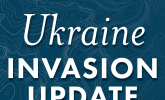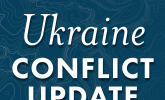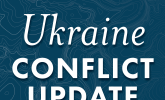May 5, 2022 - ISW Press The Kremlin is establishing economic, governmental, and informational control over occupied Ukrainian territory, indicating that Russia may be preparing to create a series of Russian proxy “people’s republics” and/or to directly annex some occupied Ukrainian territory. Russian forces are transitioning occupied territories to use the Russian ruble. Occupying military forces do not typically replace local currencies, but Russia’s proxies in occupied Ukrainian territory, the Donetsk and Luhansk People’s Republics (DNR and LNR), have used rubles in some capacity since 2015. Russian forces are also likely planning to falsify “independence referendums” to create new proxy republics or to annex occupied territories into the DNR, LNR, or Russia itself. To that end, Russian forces are supplanting local governance and beginning to establish greater control over Ukrainian communications and culture in occupied areas.
